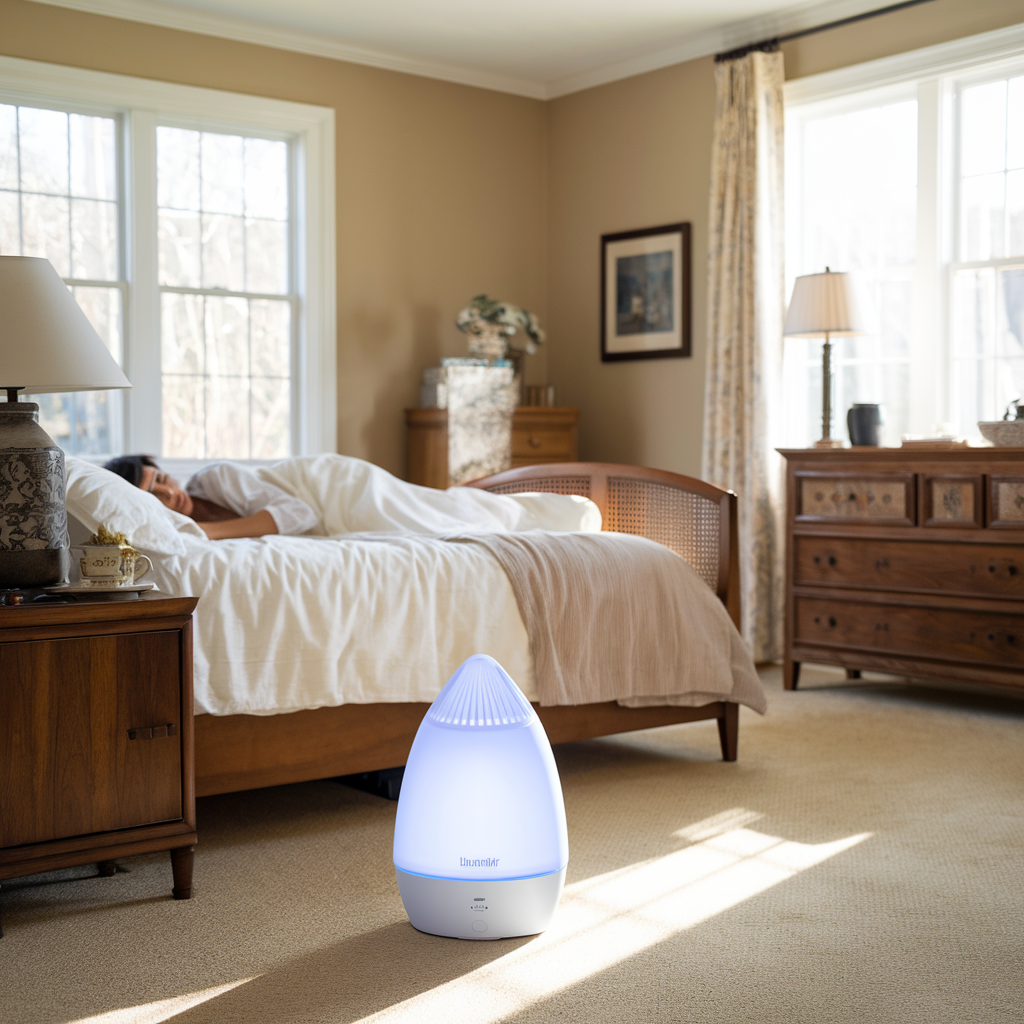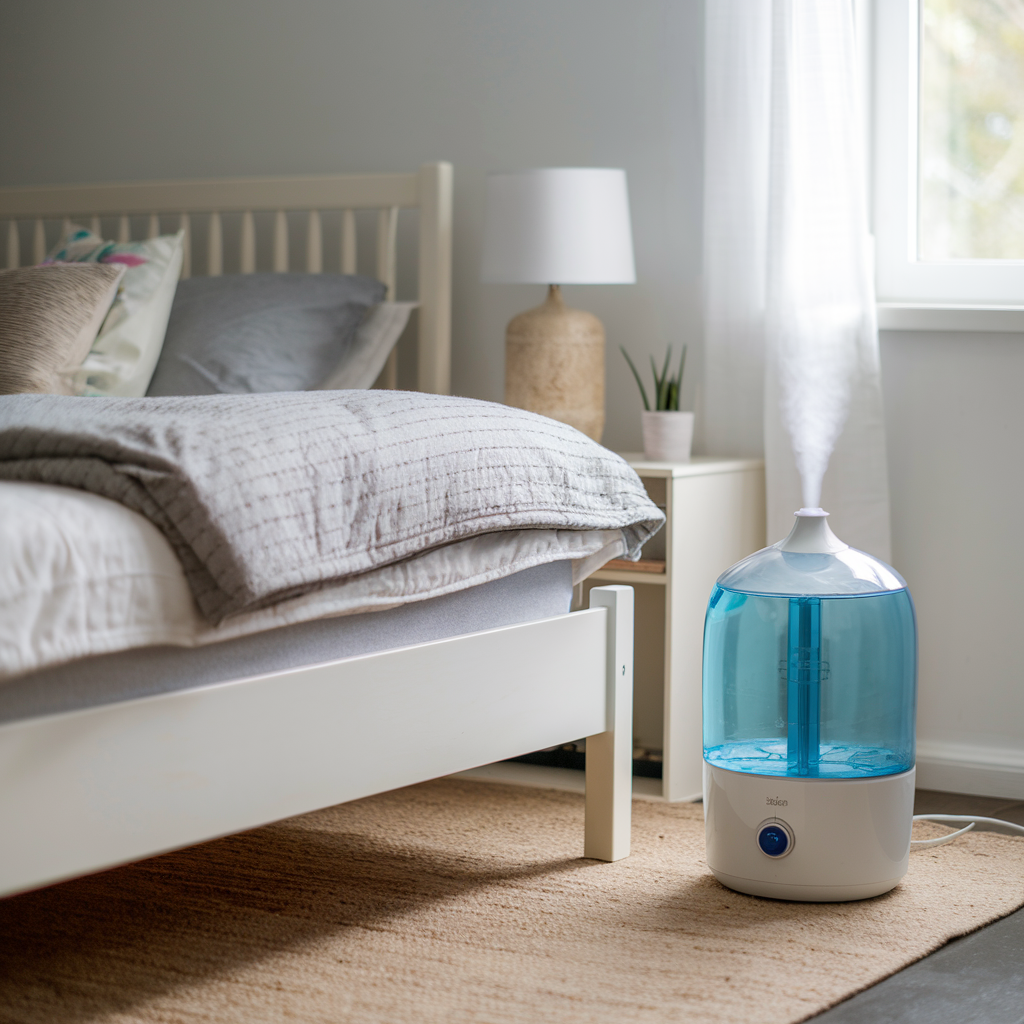Physical Address
304 North Cardinal St.
Dorchester Center, MA 02124
Physical Address
304 North Cardinal St.
Dorchester Center, MA 02124

As I settle in for the night, I often wonder about the little things that can impact my sleep. One question that pops up frequently is whether using a humidifier while I sleep is a good or bad idea. With so many conflicting opinions out there, it’s tough to know what’s best for my health and comfort.
Humidifiers can offer a range of benefits, especially in dry environments, but they also come with
As I settle in for the night, I often wonder about the little things that can impact my sleep. One question that pops up frequently is whether using a humidifier while I sleep is a good or bad idea. With so many conflicting opinions out there, it’s tough to know what’s best for my health and comfort.
Humidifiers can offer a range of benefits, especially in dry environments, but they also come with potential downsides. Understanding how they affect air quality and my overall well-being is crucial. Let’s dive into the pros and cons of sleeping with a humidifier, so I can make an informed decision that leads to a better night’s sleep.

Humidifiers increase moisture levels in the air, improving indoor air quality. They’re particularly beneficial in dry climates or during winter months when heating systems reduce humidity.
Evaporative humidifiers use a fan to blow air over wet filters, releasing moisture. They’re self-regulating and help maintain consistent humidity levels.
Ultrasonic humidifiers utilize high-frequency vibrations to produce a fine mist. They operate quietly, making them ideal for bedrooms.
Steam vaporizers heat water to create steam, then cool it before releasing it into the air. This method can kill bacteria, but it may use more energy.
Impeller humidifiers use rotating disks to fling water into a diffuser, creating a cool mist. They’re less common but effective in adding moisture.
Humidifiers alleviate dry skin, preventing irritation and discomfort.
Increased humidity helps clear nasal passages, making it easier to breathe, especially during respiratory illnesses.
Proper humidity levels can lead to better sleep by reducing snoring and soothing dry throats.
Elevated humidity can foster mold growth or dust mites, leading to potential health risks.
Regular cleaning and filter changes are essential to prevent mold and bacteria buildup.
Some models may produce noise, which could disrupt sleep quality for sensitive individuals.
Humidifiers offer notable benefits but require careful consideration regarding usage and maintenance to ensure a healthy environment.
Using a humidifier enhances comfort and promotes health while sleeping. Let’s delve into the specific advantages it offers.
Improved sleep quality occurs when humidity levels are balanced. I notice that increased moisture in the air can reduce snoring by keeping throat tissues hydrated. It helps me breathe easier at night, leading to deeper, uninterrupted sleep. A humidifier also alleviates congestion, making breathing smoother and enhancing overall rest.
Respiratory health benefits arise from using a humidifier regularly. Proper humidity levels keep airways moist, reducing irritation and inflammation. I find that it alleviates symptoms of allergies and asthma, as it helps clear mucus and ease coughing. Additionally, humidified air promotes easier breathing during cold and flu seasons, contributing to faster recovery.
Skin hydration improves significantly with added moisture in the air. I experience less dryness and flakiness when using a humidifier while sleeping. Hydrated skin retains moisture better, minimizing the chances of irritation from dry air. This benefit is particularly crucial for those prone to eczema or other skin conditions, as it helps soothe and maintain skin health.
Humidifiers can have drawbacks that might impact health and comfort negatively. It’s important to be aware of these issues for optimal use.
Over-humidification occurs when indoor humidity exceeds 50%. Excess moisture fosters mold growth, dust mites, and bacteria. Mold can thrive on walls, ceilings, and furniture, leading to respiratory problems and intensified allergies. Dust mites grow in high humidity, potentially worsening asthma symptoms. Maintaining balanced humidity, ideally between 30% and 50%, effectively mitigates these risks.
Humidifiers require regular maintenance and cleaning. Dirty humidifiers can disperse bacteria and mold into the air. I often clean my humidifier every three days to prevent buildup. Not frequently cleaning it can lead to unpleasant odors and health issues. It’s crucial to follow the manufacturer’s guidelines for cleaning and changing filters, ensuring optimal performance and a healthy environment.
Some individuals may experience allergies or irritations due to particulate matter and minerals in the water, especially with ultrasonic humidifiers. Hard water, containing minerals like calcium and magnesium, can produce a fine white dust. This dust can irritate respiratory systems. Using distilled or demineralized water reduces these risks and minimizes potential allergic reactions, creating a cleaner air environment.
I gathered insights from experts regarding the usage of humidifiers while sleeping, focusing on both sleep specialists and health professionals to present a balanced view.
Sleep specialists recognize that humidity levels impact sleep quality. Research indicates that maintaining humidity between 30% and 50% creates an optimal sleep environment, decreasing the likelihood of snoring and improving comfort. These experts emphasize that dry air can lead to respiratory irritation, which disrupts sleep. They often recommend using a humidifier for individuals who struggle with dry throats or nasal passages during sleep. However, specialists caution against excessive moisture, as it may lead to discomfort and disrupt sleep patterns.
Health professionals advocate for the health benefits of using humidifiers, particularly in dry climates or during winter months. They highlight how humidifiers can alleviate symptoms of allergies, asthma, and skin dryness, promoting overall wellness. Regular use of a humidifier can enhance airway moisture, which can reduce inflammation and irritation. However, medical professionals stress the importance of proper maintenance to prevent mold growth and bacteria, which may pose health risks. They suggest using distilled or demineralized water to minimize mineral dispersal and recommend monitoring humidity levels to avoid over-humidification.
Using a humidifier while sleeping can be a game changer for many people. It’s clear that the right humidity levels can enhance comfort and improve sleep quality. I’ve found that keeping the humidity balanced helps with breathing and can relieve dry skin.
However, it’s crucial to be mindful of potential downsides. Over-humidification can lead to mold and bacteria issues which are definitely not worth the risk. Regular maintenance and monitoring humidity levels are key to reaping the benefits without the drawbacks.
Ultimately, if you’re dealing with dry air, a humidifier can be a valuable addition to your sleep routine. Just remember to keep it clean and well-maintained for a healthier sleeping environment.